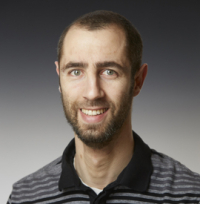Select an item by clicking its checkbox
My most recent post for “Teaching Islam” deals with some of the stakes in teaching and studying religion at a Catholic college. My colleagues Shabana Mir and Sherali Tareen have also provocatively and sharply addressed related topics of “confessional” and “secular” curricular methodologies, so I’d like to continue the ...
What’s a Catholic College? I grew up agnostic and converted to Islam when I was eighteen. A lifetime later, I now teach at a Catholic, Jesuit, liberal arts college. Like many religious studies educators, I continue to mull over questions about the intersections of identity, metaphysics, and socio-politics. So, ...
In two classes that I teach—“Islam” and “The Qur’an”—I often assign the film Wadjda (dir. Haifaa Al-Mansour, 2012) as the first homework assignment. Wadjda tells the tale of a young girl (same name as the film’s title) in Saudi Arabia who longs to own a bicycle, despite ...
Since Trump became a candidate in the 2016 US presidential race, educators have continued to reflect on how his political presence might influence pedagogy. Personally, I find myself in a familiar quagmire: to what extent do I focus on current events in my Islamic studies courses? If I wanted to, each ...
Laughter is an important ingredient in my classroom. I bank on my ability to make students laugh with my often-droll sense of humor, but I also frequently rely on professional comedians through the magic of the Internet. The status of Islam and Muslims in political satire, specifically in the genre ...
